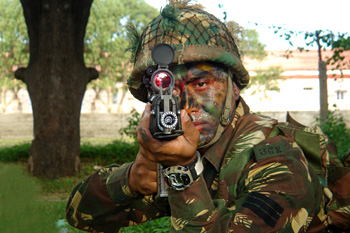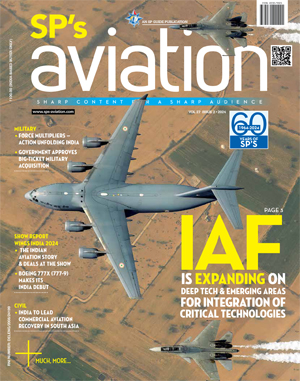INDIAN ARMED FORCES CHIEFS ON
OUR RELENTLESS AND FOCUSED PUBLISHING EFFORTS

SP Guide Publications puts forth a well compiled articulation of issues, pursuits and accomplishments of the Indian Army, over the years

I am confident that SP Guide Publications would continue to inform, inspire and influence.

My compliments to SP Guide Publications for informative and credible reportage on contemporary aerospace issues over the past six decades.
Respecting National Security
 |
By Lt. General P.C. Katoch (Retd) Former Director General of Information Systems, Indian Army |

Photo Credit: Indian Army
As per media reports, the recent visit by the NSA to Myanmar to tie up joint Indo-Myanmar operations against the Naga and other insurgents lodged inside Myanmar territory did not get the expected response from the Myanmar government. Myanmar authorities reportedly told the NSA that while NSCN was confined to border areas, the hot pursuit by the Indian Army forced them to move further inside the country, which affected Myanmar security. This response is despite the NSA having held comprehensive talks with Myanmar President U Thein Sein and top defence brass on security cooperation in Myanmar during his visit to the country.
The NSA’s visit was post the June 9 raid by Indian Special Forces inside Myanmar pursuant to the ambush of an army convoy in Manipur that resulted in the loss of 18 personnel. India’s June 9 raid was with Myanmar concurrence, hence, Myanmar declining joint operations was not expected especially when joint operations of the two militaries have been conducted in the past. But, Myanmar has been in the throes of civil unrest because of many radical outfits with a national reconciliation remaining elusive. It is also obvious that China with her defence and economic ties with Myanmar must be exerting enormous pressure on Myanmar to decline joint operations with India, especially with Chinese intelligence having created the United Liberation Front of WSEA only in April and having instigated the NSCN (K) to abrogate its 14 year old ceasefire; all to destabilize India’s northeast. Besides, China holds her proxy the USWA (United States Wa Army) over the Myanmar Army. However, Myanmar is a sovereign country and is expected to take its own decisions. What could have been behind the Myanmar’s no to joint operations with India could well be the public opinion, more prominent because of the approaching elections. Witness that when details of the June 9 raid first emerged, Myanmar declined it had given the permission to undertake raids in its territory. This is a normal reaction by any country including India if the hot pursuit was by Myanmar into Indian Territory with India’s concurrence. It is obvious that post the Manipur ambush, the army had to strike hard, which it did. But the official army statement post the raid though was in only outline, it could have left out the reference to Myanmar, which is a friendly country unlike Pakistan sponsoring terrorism in India.
Government of India’s policy makers need to take a call on why was it necessary to embarrass Myanmar. But if this was not enough, our media went totally overboard in speculation and giving out each and every detail of the raids. Where was the need to blow the issue out of proportion and put Myanmar Government in an awkward position? What is most relevant here is that a covert operation has been laid bare open. As a nation, where is our sense of national security. Obviously, the hierarchy is blissfully unaware that detailed exposures like this would adversely affect similar future operations. It is not the first time, that we have conducted cross-border raids but never has been such open chest thumping. It would not be out of context that China would have probably jailed if not executed her journalists for similar default.
It is no secret that we lack strategic culture mainly because the military is kept out of policy decisions on national security and matters military but our media is sans any sense of national security. And this is not the first time it has happened. It is well documented that during the 26/11 Mumbai terrorist strike, the senseless running commentary by our media proved a boon to the terrorists and their handlers. During the 9/11 terror strike on twin towers, the media was not permitted anywhere close to ground zero for days. In our case, post the attack on Parliament, detailed descriptions with sketches and photographs giving which minister and parliamentarians occupy which rooms in Parliament kept on filling our newspapers and magazines. Post the periodic Strike Corps exercises, you find pincers being drawn where and how deep they will go - little wonder fidgety Musharraf keeps rattling his nuke toys. In China, every journalist must be a member of the All China Journalist Association (ACJA). Periodic training capsules for them are conducted in batches for them; ranging from one day to week long capsules. We are a free democracy but the government needs to instill a sense of national security in our media with measures in place to deal with defaulters. This should be one of the major responsibilities of GoI’s Principal Information Officer assisted by the HRD Ministry. Would the Modi government take note?





